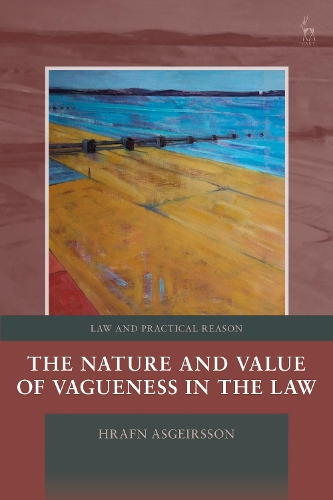
The Nature and Value of Vagueness in the Law
(Hardback)
Publishing Details
The Nature and Value of Vagueness in the Law
By (Author) Hrafn Asgeirsson
Bloomsbury Publishing PLC
Hart Publishing
16th April 2020
United Kingdom
Classifications
Professional and Scholarly
Non Fiction
340.14
Physical Properties
Hardback
216
Width 156mm, Height 234mm, Spine 13mm
458g
Description
Lawmaking is paradigmatically a type of speech act: people make law by saying things. It is natural to think, therefore, that the content of the law is determined by what lawmakers communicate. However, what they communicate is sometimes vague and, even when it is clear, the content itself is sometimes vague. This monograph examines the nature and consequences of these two linguistic sources of indeterminacy in the law. The aim is to give plausible answers to three related questions: In virtue of what is the law vague What might be good about vague law How should courts resolve cases of vagueness It argues that vagueness in the law is sometimes a good thing, although its value should not be overestimated. It also proposes a strategy for resolving borderline cases, arguing that textualism and intentionalism two leading theories of legal interpretation often complement rather than compete with each other.
Reviews
[Vagueness in law has been] a focal point of jurisprudence for six decades, and Asgeirssons The Nature and Value of Vagueness in Law is an important contribution to this field the book really does make a lot of progress, on an awful lot of issues. Plus, its refreshingly precise. Nary an argument goes by without the premises being explicitly identified. -- Daniel Wodak, University of Pennsylvania * Ethics *
There is much of interest here for philosophers of language and law on the nuance of linguistic sources of vagueness and how to resolve them. -- Joshua Pike * Law and Philosophy *
Author Bio
Hrafn Asgeirsson is Senior Lecturer in Philosophy and Law at the University of Surrey, School of Law.
